DS Automobiles DS 7 vs Volvo EX30 – Which one offers the better deal?
Everyday use, family trips or long-distance drives – here’s where the differences show.
Discover whether DS Automobiles DS 7 or Volvo EX30 fits your lifestyle better.
Here’s where it gets real: The technical differences in detail
Costs and Efficiency: Looking at overall running costs, both models reveal some interesting differences in everyday economy.
Volvo EX30 has a clearly perceptible advantage in terms of price – it starts at 33000 £, while the DS Automobiles DS 7 costs 41900 £. That’s a price difference of around 8889 £.
As for range, the Volvo EX30 performs decisively better – achieving up to 476 km, about 411 km more than the DS Automobiles DS 7.
Engine and Performance: Power, torque and acceleration are the classic benchmarks for car enthusiasts – and here, some clear differences start to show.
When it comes to engine power, the Volvo EX30 has a somewhat edge – offering 428 HP compared to 360 HP. That’s roughly 68 HP more horsepower.
In acceleration from 0 to 100 km/h, the Volvo EX30 is convincingly quicker – completing the sprint in 3.60 s, while the DS Automobiles DS 7 takes 5.70 s. That’s about 2.10 s faster.
In terms of top speed, the DS Automobiles DS 7 performs distinct better – reaching 235 km/h, while the Volvo EX30 tops out at 180 km/h. The difference is around 55 km/h.
There’s also a difference in torque: the Volvo EX30 pulls slight stronger with 543 Nm compared to 520 Nm. That’s about 23 Nm difference.
Space and Everyday Use: Beyond pure performance, interior space and usability matter most in daily life. This is where you see which car is more practical and versatile.
Both vehicles offer seating for 5 people.
In curb weight, the DS Automobiles DS 7 is a bit lighter – 1651 kg compared to 1840 kg. The difference is around 189 kg.
In terms of boot space, the DS Automobiles DS 7 offers decisively more room – 555 L compared to 318 L. That’s a difference of about 237 L.
In maximum load capacity, the DS Automobiles DS 7 performs significantly better – up to 1750 L, which is about 750 L more than the Volvo EX30.
When it comes to payload, DS Automobiles DS 7 slight takes the win – 424 kg compared to 390 kg. That’s a difference of about 34 kg.
Our conclusion: The Volvo EX30 proves to be outperforms in nearly all aspects and thus becomes our DriveDuel Champion!
Overall, Volvo EX30 is the better all-rounder in this comparison.
DS Automobiles DS 7
The DS 7 stands out with its striking design and luxurious comfort, making it a true embodiment of French elegance in the SUV segment. Inside, the cabin showcases a blend of high-quality materials and innovative features that cater to both driver and passenger needs. With its impressive road presence and refined driving dynamics, the DS 7 promises a captivating driving experience that doesn't compromise on style.
details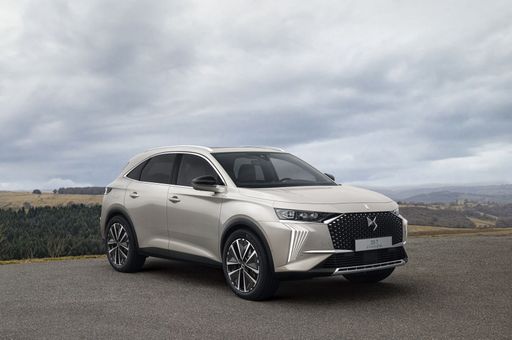 @ media.stellantis.com
@ media.stellantis.com
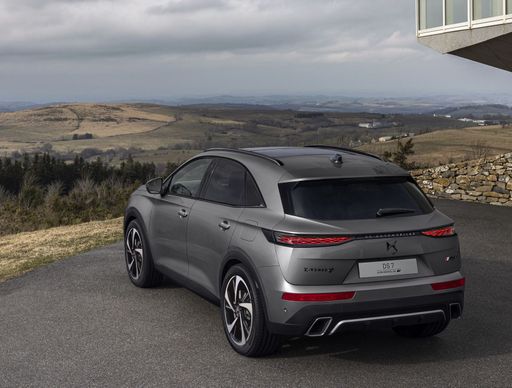 @ media.stellantis.com
@ media.stellantis.com
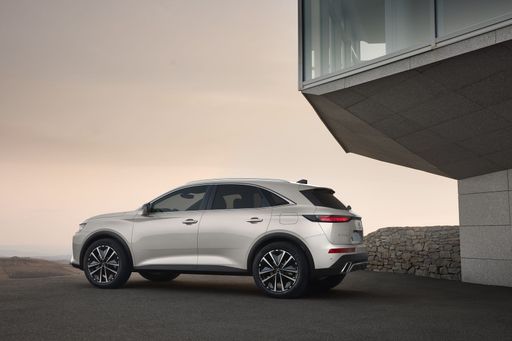 @ media.stellantis.com
@ media.stellantis.com
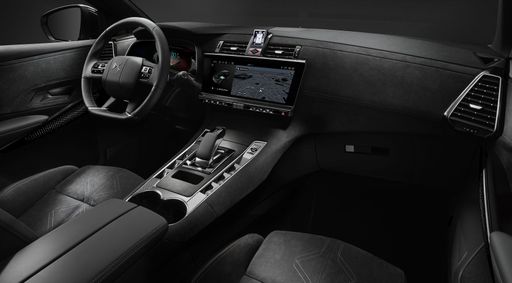 @ media.stellantis.com
@ media.stellantis.com
Volvo EX30
The Volvo EX30 represents a bold step forward for the brand, combining advanced technology with sustainable design principles. Its sleek and compact exterior belies a spacious interior that offers a premium driving experience. With a focus on safety and innovation, this model reflects Volvo's commitment to shaping the future of urban mobility.
details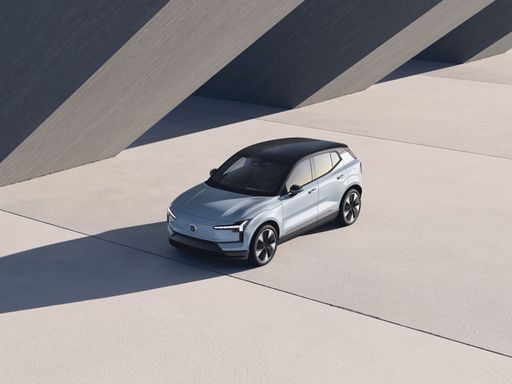 @ Volvo
@ Volvo
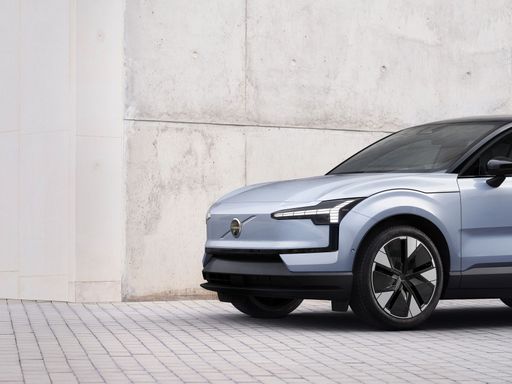 @ Volvo
@ Volvo
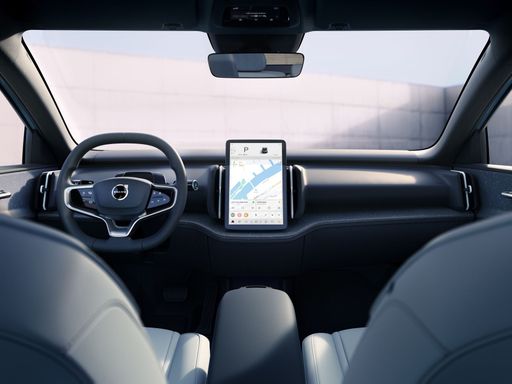 @ Volvo
@ Volvo
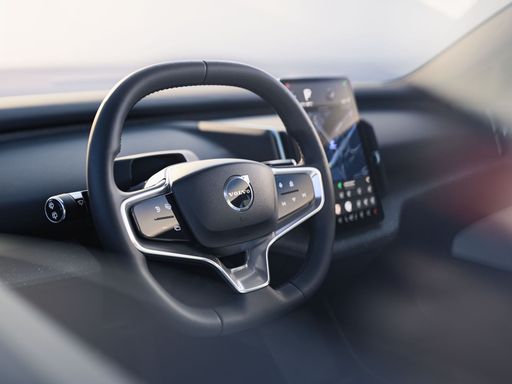 @ Volvo
@ Volvo
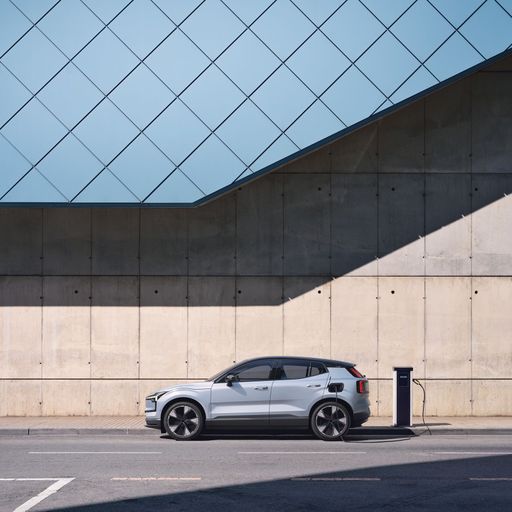 @ Volvo
@ Volvo

|

|
|
|
|
Costs and Consumption |
|
|---|---|
|
Price
41900 - 59300 £
|
Price
33000 - 49100 £
|
|
Consumption L/100km
1.3 - 5.5 L
|
Consumption L/100km
-
|
|
Consumption kWh/100km
-
|
Consumption kWh/100km
17 - 18.7 kWh
|
|
Electric Range
50 - 65 km
|
Electric Range
339 - 476 km
|
|
Battery Capacity
12.90 kWh
|
Battery Capacity
49 - 65 kWh
|
|
co2
30 - 145 g/km
|
co2
0 g/km
|
|
Fuel tank capacity
43 - 55 L
|
Fuel tank capacity
-
|
Dimensions and Body |
|
|---|---|
|
Body Type
SUV
|
Body Type
SUV
|
|
Seats
5
|
Seats
5
|
|
Doors
5
|
Doors
5
|
|
Curb weight
1651 - 2002 kg
|
Curb weight
1840 - 1960 kg
|
|
Trunk capacity
555 L
|
Trunk capacity
318 L
|
|
Length
4593 mm
|
Length
4233 mm
|
|
Width
1891 mm
|
Width
1838 mm
|
|
Height
1625 mm
|
Height
1550 - 1567 mm
|
|
Max trunk capacity
1750 L
|
Max trunk capacity
1000 L
|
|
Payload
398 - 424 kg
|
Payload
370 - 390 kg
|
Engine and Performance |
|
|---|---|
|
Engine Type
Diesel, Plugin Hybrid
|
Engine Type
Electric
|
|
Transmission
Automatic
|
Transmission
Automatic
|
|
Transmission Detail
Automatic Gearbox
|
Transmission Detail
Reduction Gearbox
|
|
Drive Type
Front-Wheel Drive, All-Wheel Drive
|
Drive Type
Rear-Wheel Drive, All-Wheel Drive
|
|
Power HP
130 - 360 HP
|
Power HP
272 - 428 HP
|
|
Acceleration 0-100km/h
5.7 - 11.9 s
|
Acceleration 0-100km/h
3.6 - 5.7 s
|
|
Max Speed
195 - 235 km/h
|
Max Speed
180 km/h
|
|
Torque
300 - 520 Nm
|
Torque
343 - 543 Nm
|
|
Number of Cylinders
4
|
Number of Cylinders
-
|
|
Power kW
96 - 265 kW
|
Power kW
200 - 315 kW
|
|
Engine capacity
1499 - 1598 cm3
|
Engine capacity
-
|
General |
|
|---|---|
|
Model Year
2024 - 2025
|
Model Year
2024 - 2025
|
|
CO2 Efficiency Class
E, B
|
CO2 Efficiency Class
A
|
|
Brand
DS Automobiles
|
Brand
Volvo
|
What drive types are available for the DS Automobiles DS 7?
The DS Automobiles DS 7 is available as Front-Wheel Drive or All-Wheel Drive.
The prices and data displayed are estimates based on German list prices and may vary by country. This information is not legally binding.
